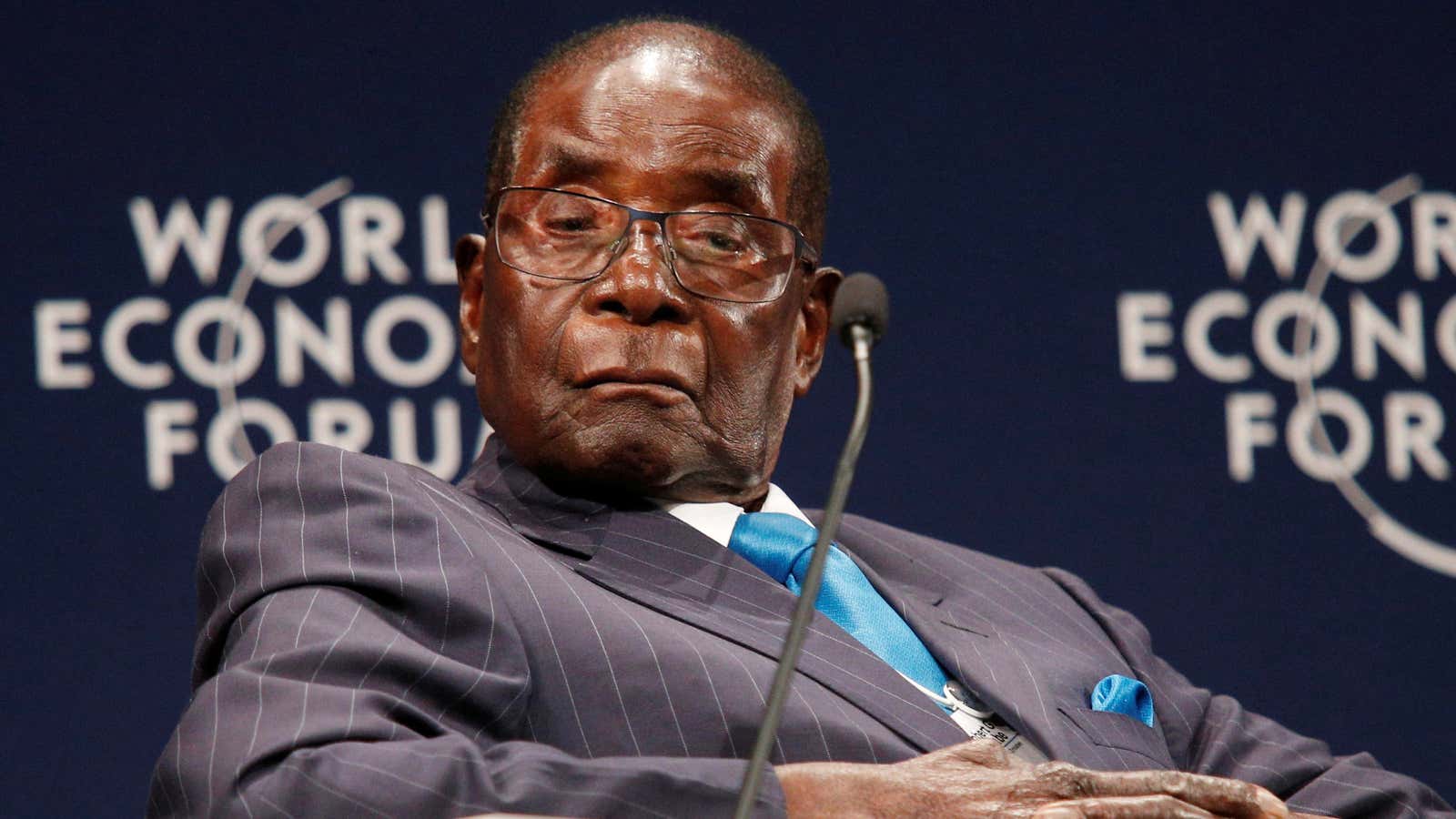Durban, South Africa
On a World Economic Forum panel discussion about “fragile” states, president Robert Mugabe would not allow his country to be categorized as such.
Mugabe was joined by the actor and human rights activist Forest Whitaker, Ugandan youth activist Victor Ochen, and the African Development Bank’s Donald Kaberuka on stage at the forum’s Africa meeting on May 4.
But when asked by the moderator if African leaders have done enough to address fragility, Mugabe was immediately defensive.
“Zimbabwe is one of the most highly developed countries in Africa, after South Africa. I want to know which country has that level of development that you see in Zimbabwe,” he retorted. “We have got universities, our literacy rate is over 90%. It’s the highest in Africa. Don’t talk about us as if we are a fragile state.”
He went on to list the country’s mineral resources, and said the country would have a bumper harvest of crops such as maize, cotton and tobacco. “From an economic point of view, yes we have our problems,” he said, “but oh certainly we have achieved outcomes.”
There’s plenty to dispute in Mugabe’s narrative, given the country’s current economic and political crisis. The gains Zimbabwe made after independence have been eroded, along with its currency.
This rhetoric is not new from Mugabe, but what was notable was the lack of energy with which he delivered his rebuttal. Known for his stamina to deliver meandering speeches at rallies, the 92-year-old himself sounded fragile—at times too faint to hear. Mugabe’s voice was subdued, his blue suit crumpling as he slumped into the chair.
The aging strongman was treated with respect by his fellow panelists. In closing, however, Winnie Byanyima of the charity Oxfam made a suggestion: Perhaps, she said, the best thing leaders could do for failed states was to retire and make way for energetic new leaders.
